The third edition of the EMBL-IBEC conference organised by the Institute for Bioengineering of Catalonia (IBEC) and the European Molecular Biology Laboratory (EMBL) focused on emerging and advanced therapies, bringing together around 150 international experts in the field of bioengineering last week at the PRBB in Barcelona.
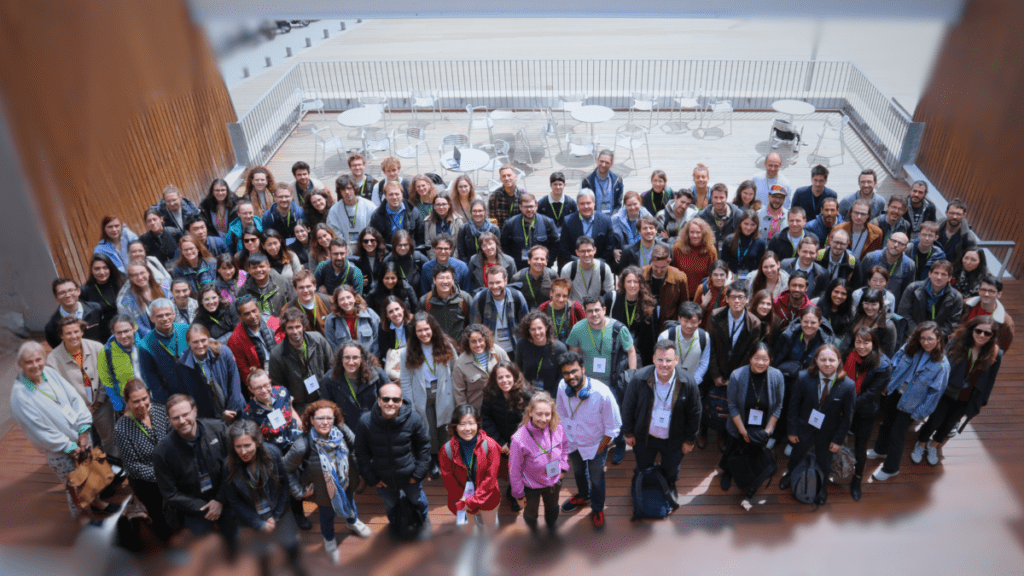
The third edition of the EMBL-IBEC Conference on Engineering Multicellular Systems, which focused on emerging and advanced therapies, addressed the latest advances in emerging fields of bioengineering, such as organ-on-chip assays, 3D bioprinting, cell mechanobiology, stem cell biology, and how all these advances have revolutionised our ability to design and assemble multicellular living systems, from organoids to embryos.
This biennial event, which is being consolidated in Barcelona as an international benchmark, has focused on how the engineering of multicellular living systems is driving our understanding of the function of tissues and organs, with applications in drug modelling, disease detection and tissue engineering, and their applications in advanced therapies.
Few areas of research are capable of having an impact on advanced therapies like bioengineering. Recent advances in this field have been key in the design and development of various technologies. These approaches help researchers to understand how our tissues function, while at the same time raising questions related to human diseases and ageing.
Another key aspect of bioengineering is to identify the potential ethical risks and social impact that these new technologies may have on future medicine, which were also discussed at the biennial.
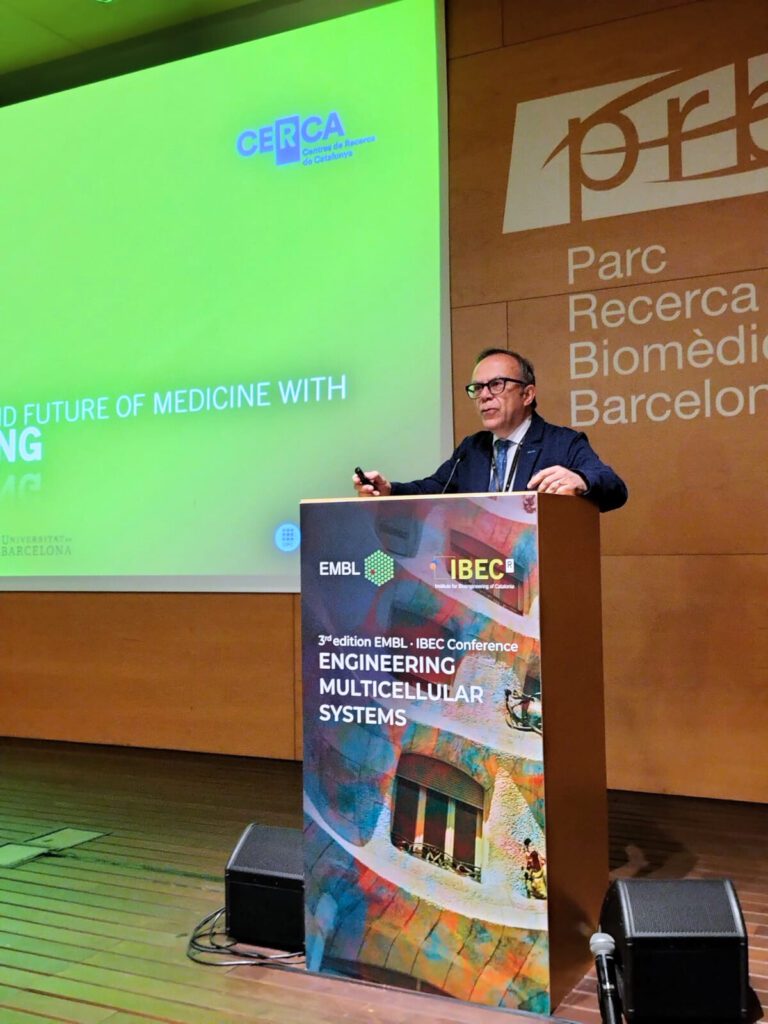
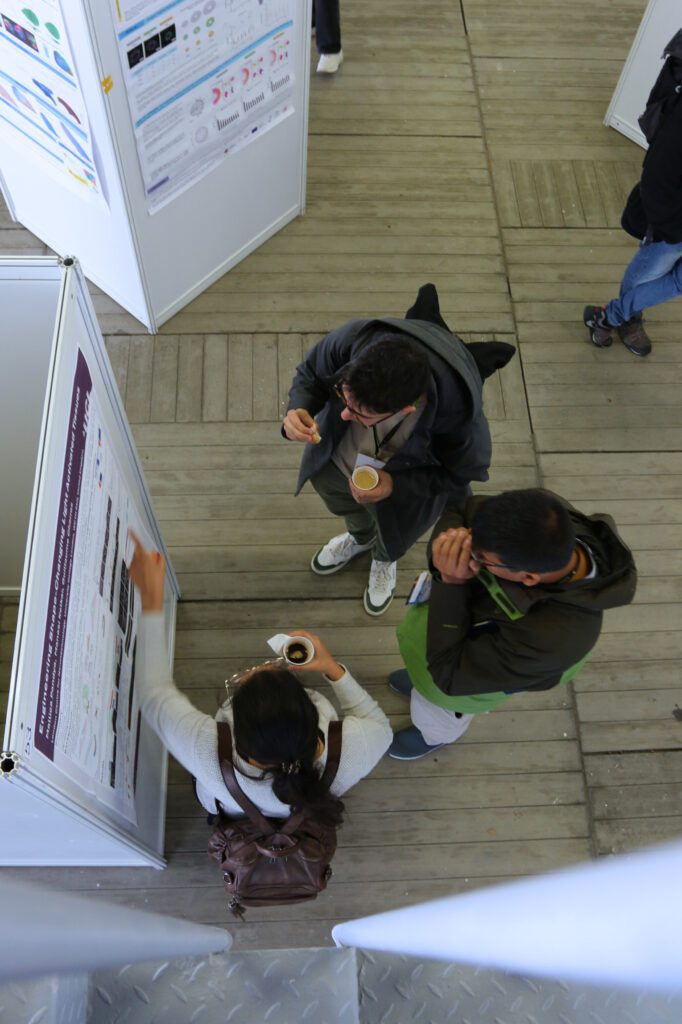
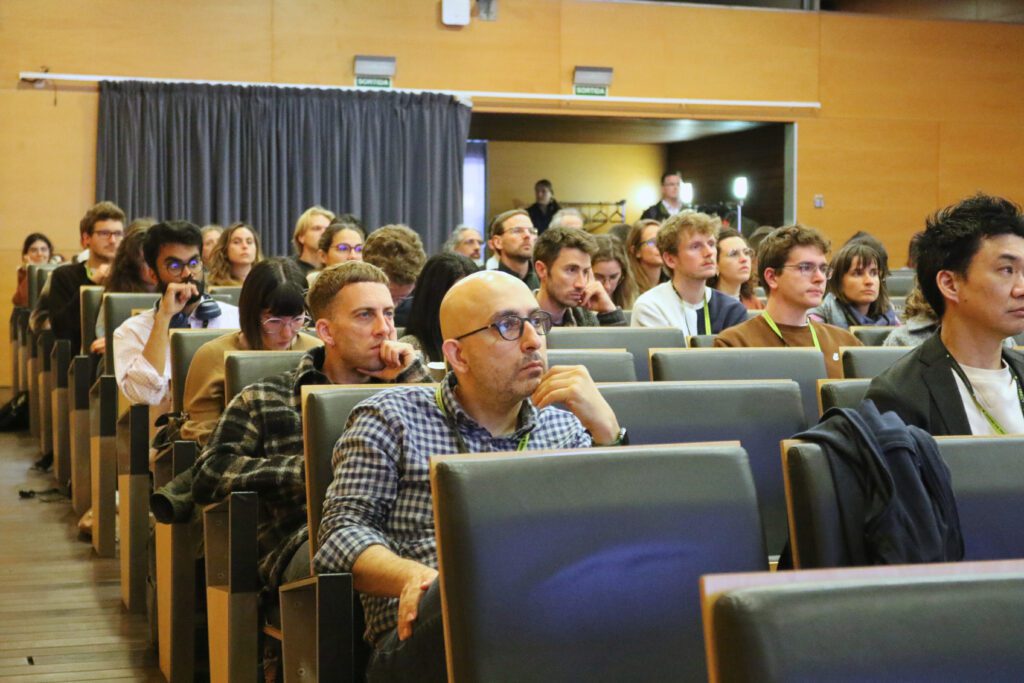
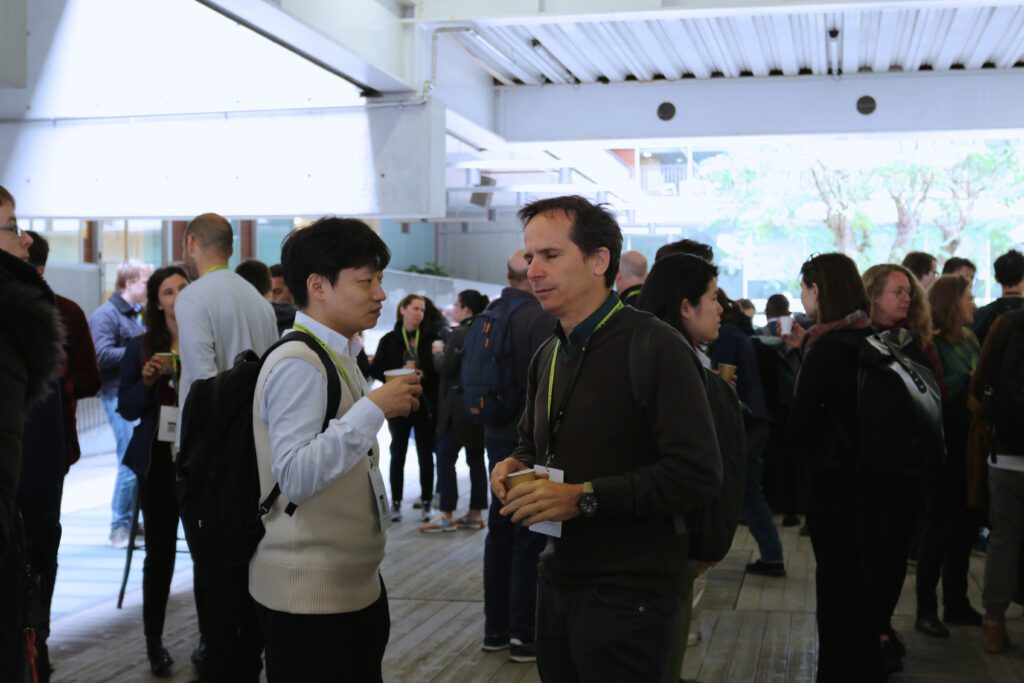
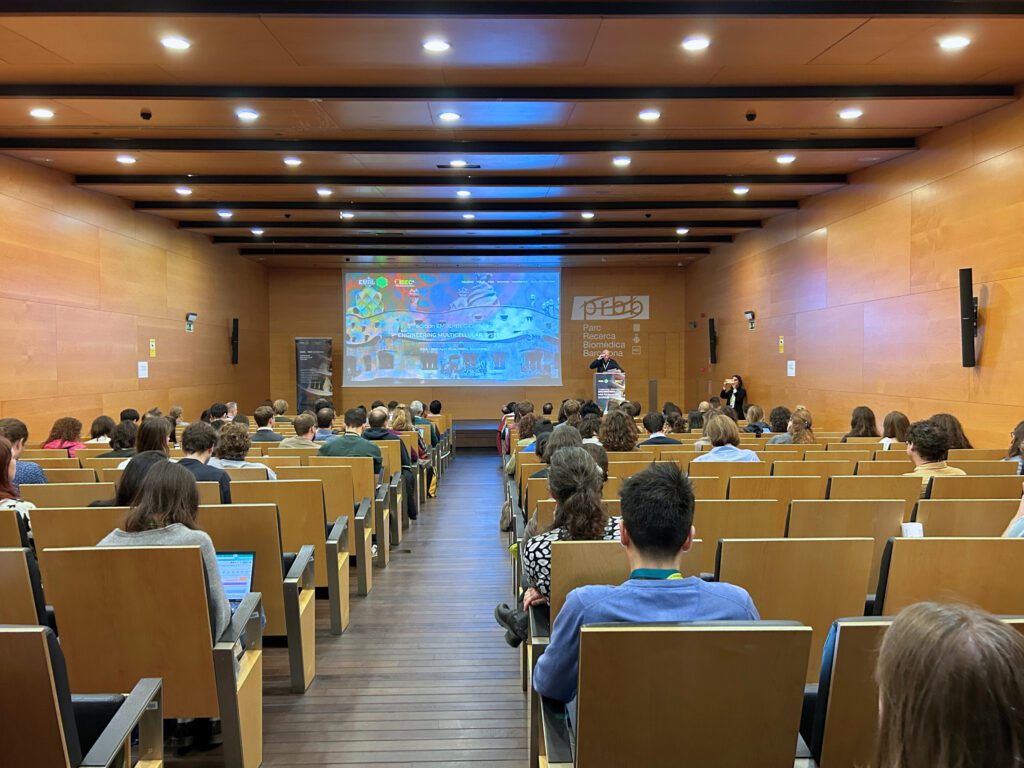
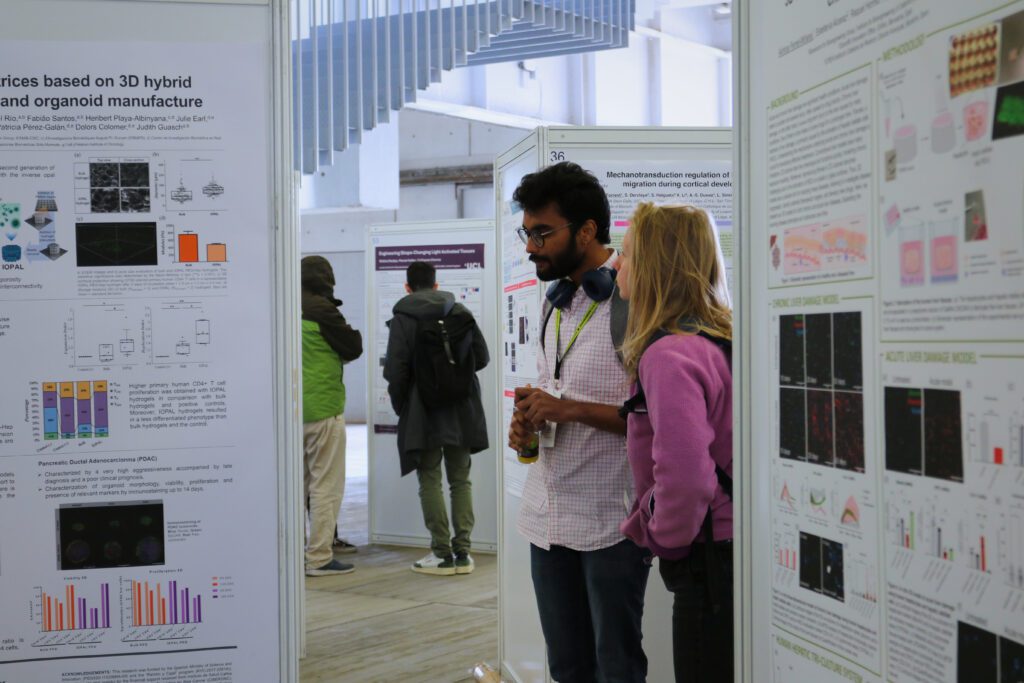
The conference featured 20 invited experts from the field of bioengineering, Zaida Álvarez, IBEC (Spain); Hans Celvers, Utrecht University (The Netherlands); Jamie Davies, University of Edinburgh (United Kingdom); Mo R. Ebrahimkhani, University of Pittsburgh (USA); Arye Elfenbein, Wiltype (USA); Maneesha Inamdar, Institute for Stem Cell Science and Regenerative Medicine (India); Madeline Lancaster, MRC Laboratory of Molecular Biology (UK); Daniel lobo, University of Maryland (USA); Christine Mummery, Leiden University (The Netherlands); Ubaka Ogbogu, University of Alberta (Canada); Satoru Okuda, WPI Kanazawa University (Japan); Sergiu Pasca, WU Tsai Neurosciences Institute (USA); Ritu Raman, MIT (USA); Sharad Ramanathan, Harvard University (USA); Berna Sozen, Yale University (USA); Masayo Takahashi, RIKEN Research Institute (Japan); Alejandro Torres Sanchez; EMBL Barcelona (Spain); Sara Wickström, Max Planck Institute for Molecular Biomedicine (Germany) and Marcy Zenoby-Wong, Swiss Federal Institute of Technology.
Satellite Program: Art and Citizen Science
As has become a tradition, the main event was accompanied by a satellite citizen science activity. This year’s edition featured a workshop as part of IBEC’s FECYT-funded IMAB project on organ and tissue regeneration. Its aim is to involve citizens over the age of 65 to learn about, understand and give their opinion on the latest research in Engineering Multicellular Systems.
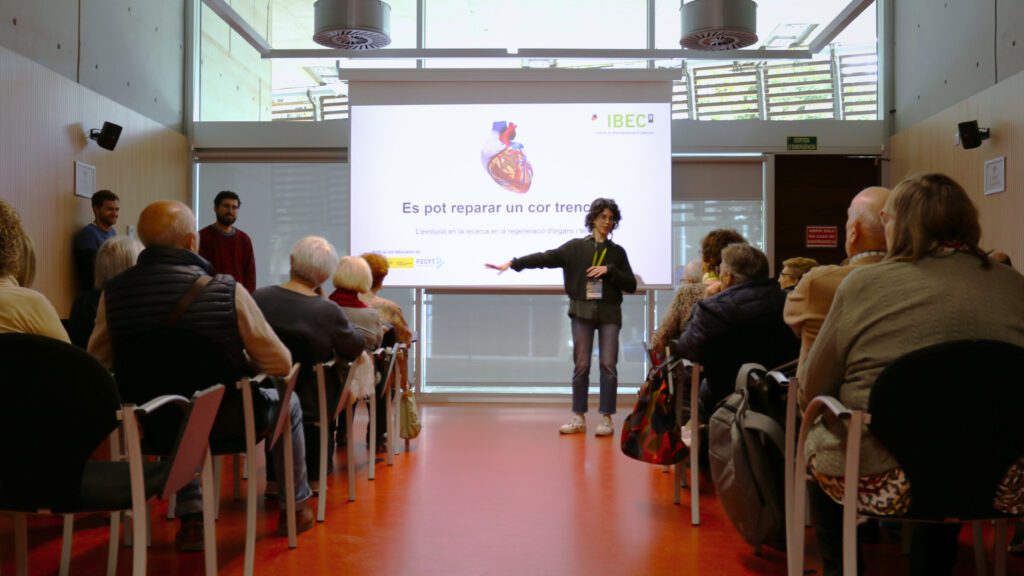
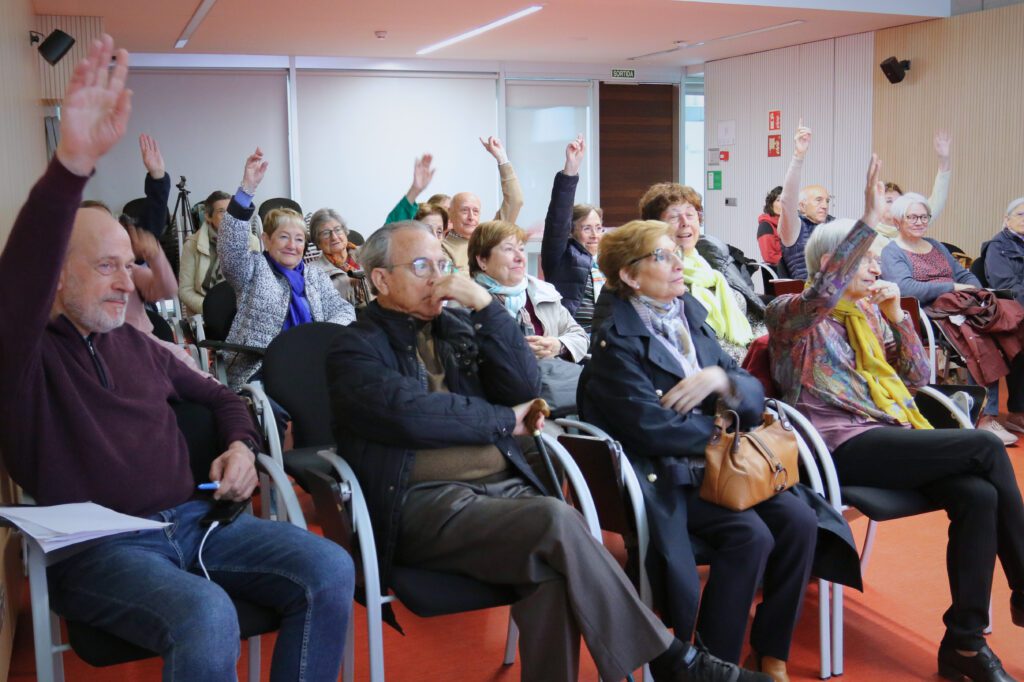
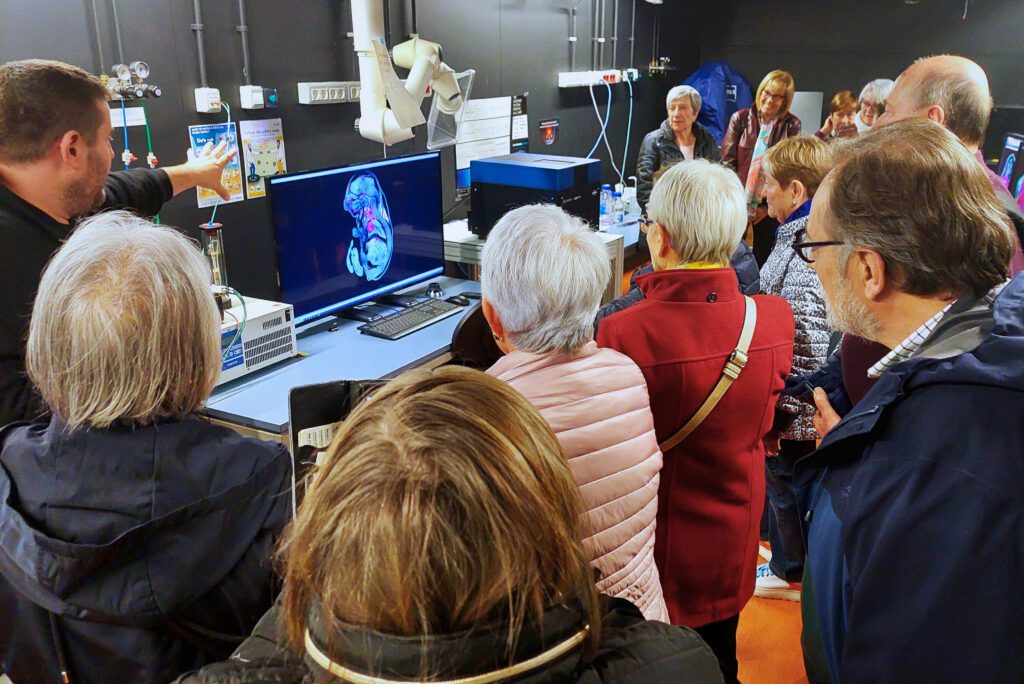
The satellite programme also featured an Art and Science section, with the video essay ‘HeLa et al.’, a work created by visual artist Tess Marschner during her artistic residence at IBEC, on display throughout the conference. Participants had the opportunity to interact with the artist, who was available during the conference’s poster sessions.
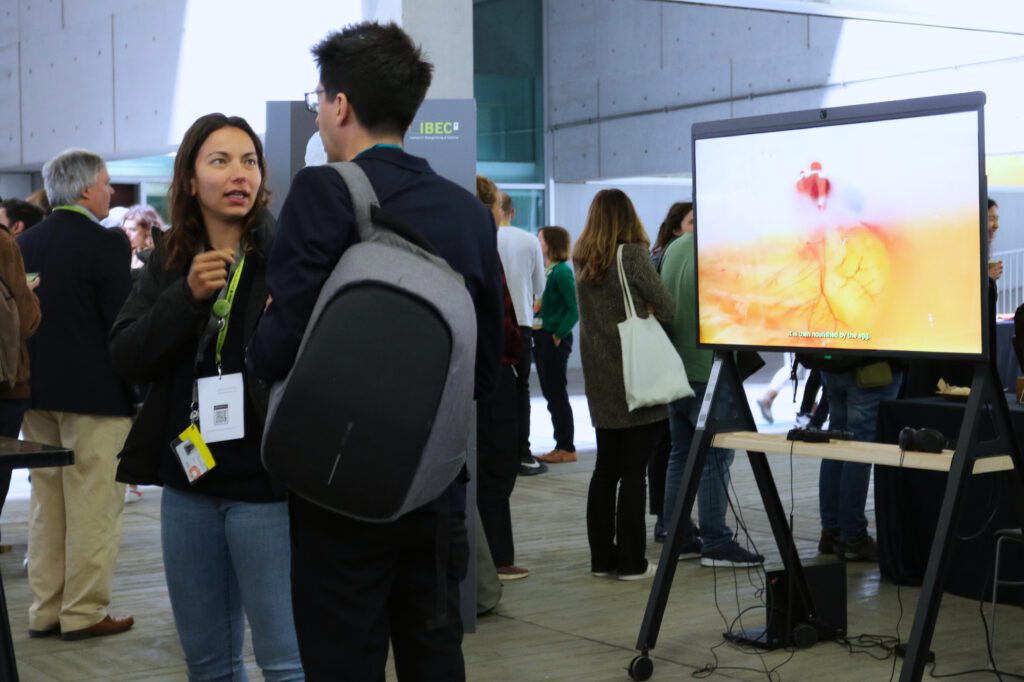
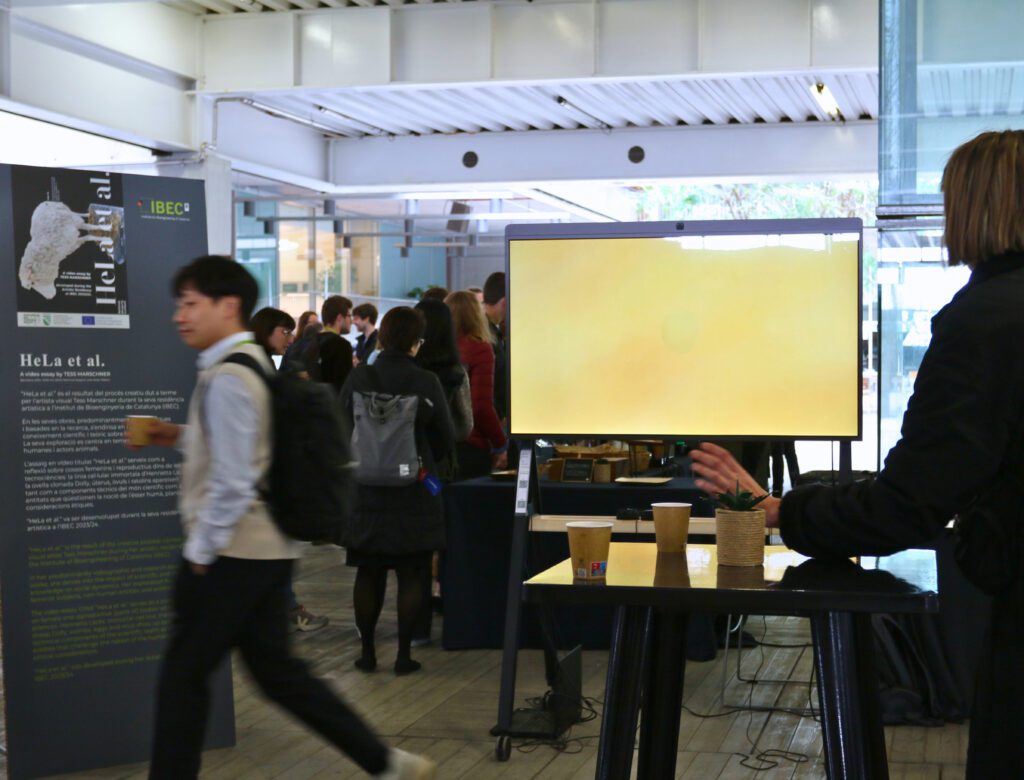
On the last day, the awards ceremony for the best posters of the conference took place. This year’s winners were Alina Batzilla from EMBL Barcelona, Sebastian Kühn from the Leibniz Institute for Polymer Research in Dresden and Kristina Stapornwongkul from EMBL Barcelona.
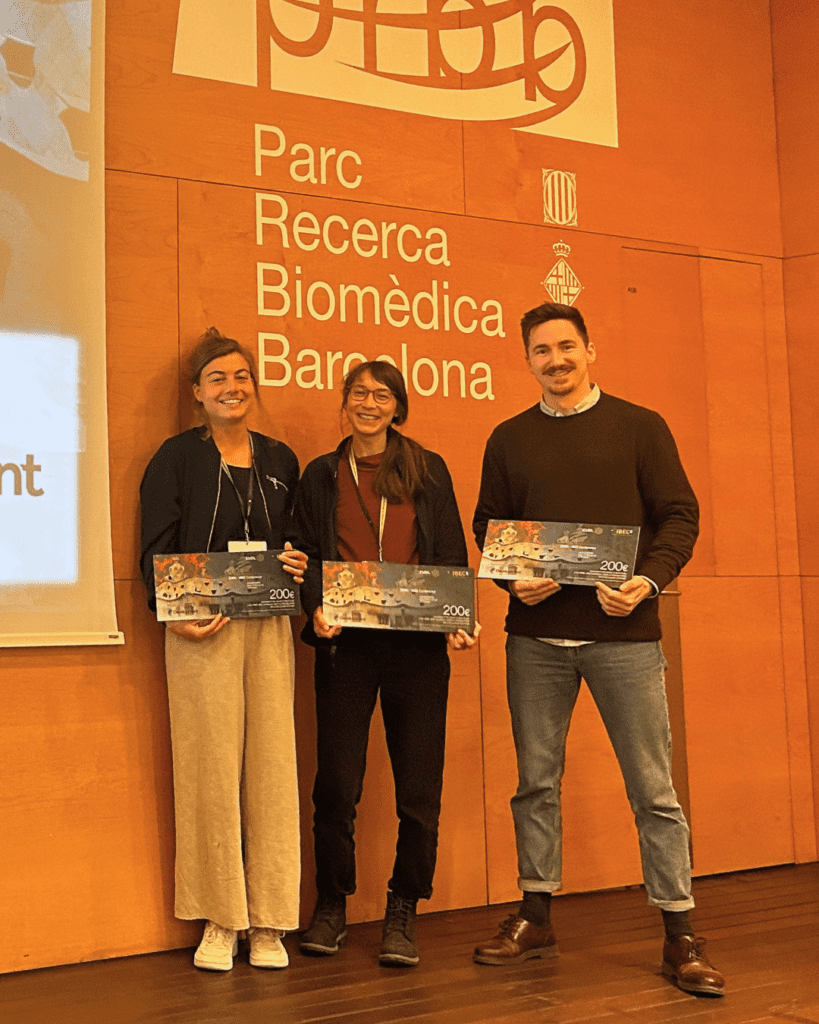
The conference is the result of a collaboration between the European Molecular Biology Laboratory (EMBL) and the Institute for Bioengineering of Catalonia (IBEC) and was led by researchers Xavier Trepat, Núria Montserrat and Josep Samitier from IBEC, and James Sharpe, Miki Ebisuya, Kristina Haase and Vikas Trivedi from EMBL Barcelona. Both institutions carry out excellent and responsible research, developing technology for precision medicine and fundamental knowledge to improve people’s health.





